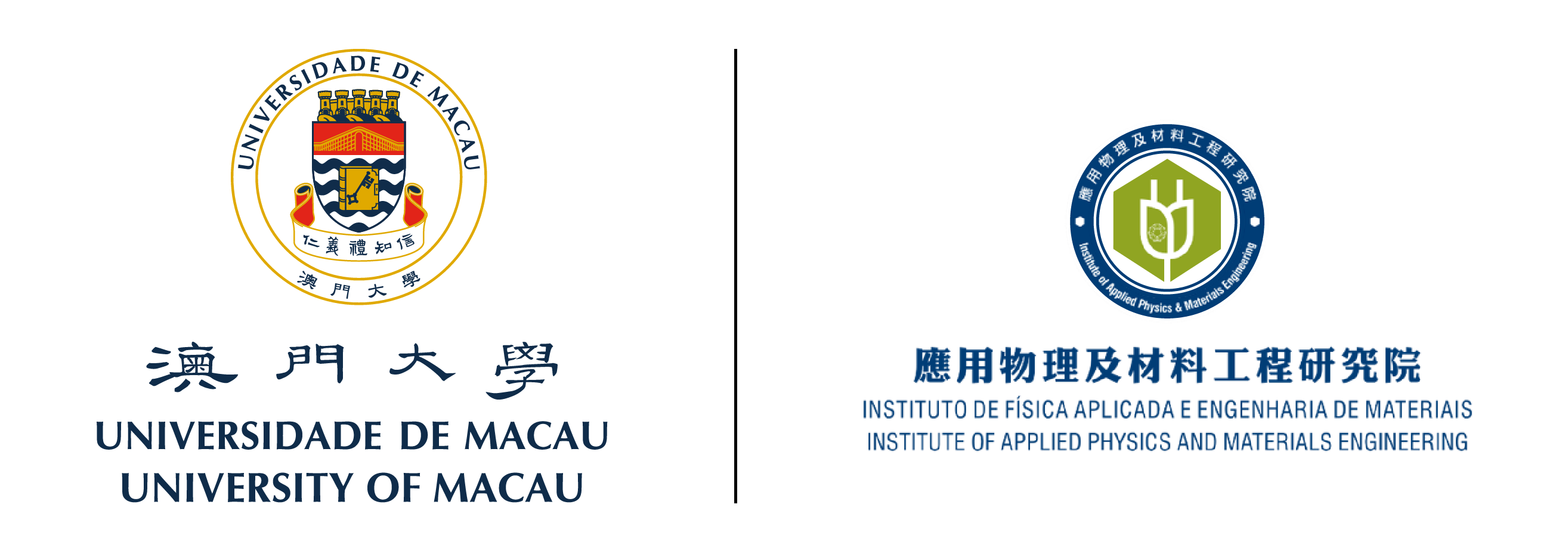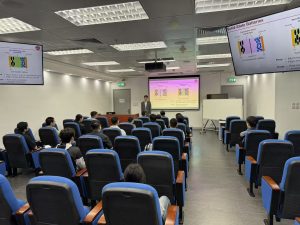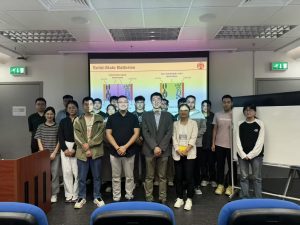On November 17, 2025, Prof. Liangliang Li (李亮亮) from the School of Interdisciplinary Studies at Lingnan University gave a seminar titled “Design and Optimization of Polymer-Based Electrolytes for Solid-State Batteries.”, and the seminar was hosted by Prof. Kwun Nam Hui. Prof. Li is an established researcher in solid-state electrolytes, with prior experience at Applied Materials in the United States and 15 years as a faculty member at Tsinghua University. He has published more than 100 papers in leading journals such as Advanced Materials, Advanced Energy Materials, and Nano Energy.
Prof. Li opened his talk by highlighting the growing demand for safe, high-energy-density storage technologies that can operate across wide temperature ranges—an area where solid-state batteries (SSBs) have emerged as compelling candidates. He emphasized that solid electrolytes are the core bottleneck for SSB commercialization and that polymer-based electrolytes, particularly those derived from poly(vinylidene fluoride) (PVDF), offer several advantages, including mechanical flexibility, ease of processing, and scalability. However, he noted the persistent challenges of low ionic conductivity, insufficient oxidative stability, and poor interfacial compatibility with lithium metal.
In response to these limitations, Prof. Li presented a series of innovative strategies developed by his group to dramatically enhance the electrochemical properties of PVDF-based polymer electrolytes. First, his team engineered Li–solvent coordination structures that facilitate ion transport through PVDF chain segments. He then described the systematic optimization of polymeric additives and functional components to improve both ionic conductivity and the stability of the electrolyte–anode interface. A key highlight of his talk was the introduction of a thermo–electrochemical interfacial treatment, which significantly stabilizes the PVDF–Li metal interface during cycling.
The presentation concluded with an engaging and interactive Q&A session, with participants raising questions related to interfacial engineering, polymer design principles, and opportunities for cross-institutional research collaboration. Prof. Li’s visit not only strengthened academic exchange between our institutions but also reinforced a shared commitment to advancing safe, scalable, and high-performance solid-state battery technologies.



